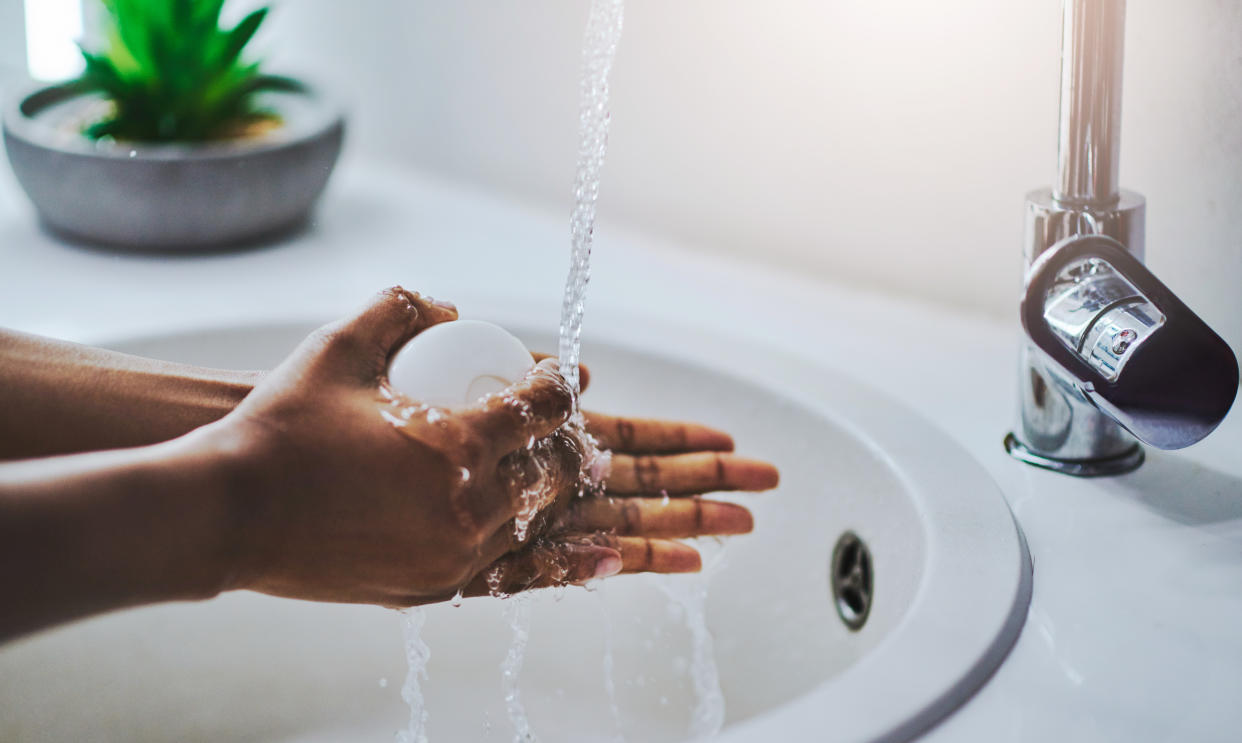The coronavirus outbreak is prompting these cities to stop water shut-offs 'for the health of everyone'

As schools close and cities across the country slide into lockdown during the coronavirus pandemic, the connections between poverty, lack of environmental equity and public health are becoming more apparent by the day. That’s slowly given rise to municipalities and companies halting both eviction proceedings and utility bills, particularly for the restoration of phone and water service, so as to not make a bad situation worse, and to give customers a break on family essentials.
Detroit was one of the first cities to begin restoring water, over a week ago, to thousands of households that had had their service cut off. “The notion that a City could shut off water on people in the midst of a potential infectious disease epidemic — really EVER — is unconscionable,” former Detroit Health Department Executive Director Abdul El-Sayed told Metro Times.
USA Today reports that there are now over 20 companies offering shut-off moratoriums. And cities including Seattle has also suspended shut-offs, New York has also followed suit, announcing a statewide suspension on home evictions as of March 16, as have cities including Seattle, Phoenix, Atlanta, St. Louis and Birmingham, Ala. But many have not taken the step, despite pressure from federal lawmakers to do so.

Still, the enforcement of nationwide infection control has been to spark a larger conversation about how disparities in environmental justice translate into devastation amidst a national crisis.
Yahoo Lifestyle reached out to Jessica Hamer, head of policy and campaigns at Health Poverty Action, an organization that believes “the greatest causes of poor health worldwide are political, social and economic injustices. Hamer says, through a statement, “COVID-19 is exposing how people in poverty suffer the most in a public health crisis. They are all too often denied access to the services that can keep them safe. COVID-19 reveals the limits of systems built on people paying for essential services like water and healthcare, which are vital not only for [an] individual's health, but the health of everyone.”
Other countries affected by the virus have also joined the service-restoring trend, with President Emmanuel Macron of France announcing that payment of taxes, rent, water, gas, and electricity bills would be suspended during the 15-day countrywide lockdown.
On Twitter, users are both commending the numerous efforts to support people during this crisis and calling out entities which, they feel, have not done enough. One user tweets, “This is what means for a government to have sense, and for a government to care,“ in response to France’s recent announcement. Another user instead tweeted a reminder “that the federal reserve injected $1.5 trillion into the economy last week but apparently there’s no relief funding for rent + mortgages, student loans and the coronavirus pandemic.”
BREAKING NEWS:
Macron just said for all French companies during this Coronavirus outbreak:
NO payment of taxes,
NO payment of rent,
No payment of water,
NO payment of gas, and electricity bills.
This is what means for a government to have sense, and for a government to care.— #OurFavOnlineDoc 🛂 (@DrOlufunmilayo) March 16, 2020
This man is really good for his country🇨🇦@JustinTrudeau also said that no one should have to worry about, ‘paying rent, buying groceries, or additional childcare because of COVID-19’. “We will help Canadians financially,” he emphatically stated.https://t.co/vj5C0Wt6UP
— 🙏🏽Patou in quarantine😷💪🏼 (@PatouArt) March 14, 2020
Good morning. A reminder that the federal reserve injected $1.5 trillion into the economy last week but apparently there’s no relief funding for rent + mortgages, student loans and the coronavirus pandemic. Cool.
— Michelle Voacolo (@itsmemichellev) March 17, 2020
U.S. Rep. Rashida Tlaib tweeted at the governor and lieutenant governor of Detroit, “Please don’t forget poor families. They deserve protection and with no access to water we are putting them in jeopardy.”
Hamer tells Yahoo Lifestyle, “Governments worldwide must act now to guarantee universal access to free healthcare and other essential services. This would help to tackle the pandemic today, and ensure people’s health in the future too.”
For the latest news on the evolving coronavirus outbreak, follow along here. According to experts, people over 60 and those who are immunocompromised continue to be the most at risk. If you have questions, please reference the CDC and WHO’s resource guides.
Read more from Yahoo Lifestyle:
